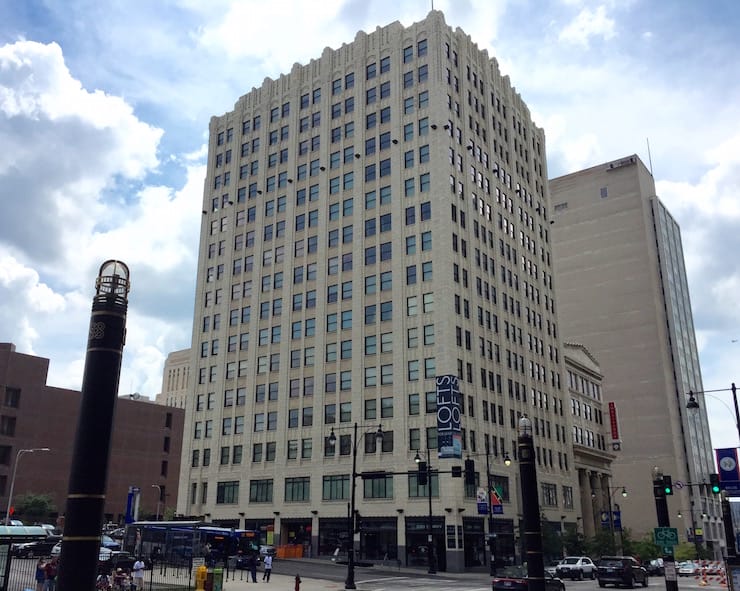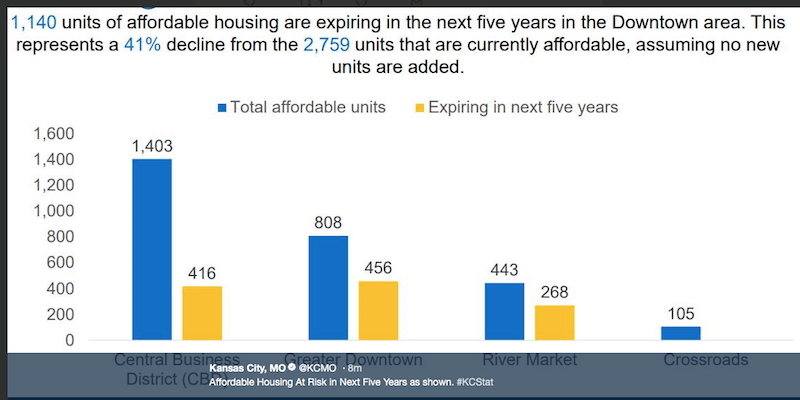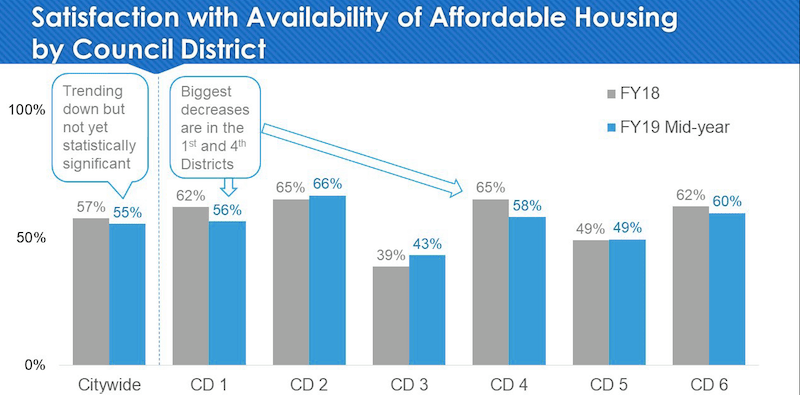Key State Affordable Housing Tax Credit Program Poised for Revival

Published September 18th, 2020 at 12:15 PM
(Editor’s note, the Missouri Housing Development Commission voted to restore funding for the state Low Income Housing Tax Credit program on Sept. 25)
By Kevin Collison
A state incentive program that was considered a vital tool to help build affordable housing in downtown Kansas City and around Missouri before being defunded in 2017 by former Gov. Eric Greitens may be revived soon.
The Missouri Housing Development Commission is poised to restore funding to the Missouri Low Income Housing Tax Credit program when it meets again later this month, according to local and state affordable housing advocates.
Providing more affordable housing has been a major political and social issue in Kansas City as well as across the state and nation, and the expected restoration of what’s referred to as the LIHTC program is being hailed by housing advocates.
“There were over 100,000 people on the Missouri affordable housing wait list at the end of last year, ” said Jeff Smith, executive director of the Missouri Workforce Housing Association. “I suspect the demand has only grown since the pandemic.
“It’s critical to have programs like this to build decent, safe affordable housing. Although it won’t completely solve the need, it will provide thousands more units in the next few years.”
The incentive program allows developers to sell the LIHTC credits to raise cash to subsidize the cost of building affordable housing. Investors purchase the credits which they can then use to reduce their state income tax obligation.

This city chart from early 2018 breaks down the pending drop in affordable units downtown. (KCStat)
The LIHTC program had been an important financing tool in the development of hundreds if not thousands of affordable housing units in downtown and throughout Kansas City before it was defunded.
“When we were working on housing policy two- or three years ago, the tax credit was a cornerstone we relied on,” said John Wood, director of the Kansas City Neighborhoods and Housing Services Department.
“The MHDC piece was something we needed to develop the affordable units we needed in the city.”
A similar federal low-income housing tax credit program is managed by the Missouri Housing Development Commission and has continued operating.
Greitens pushed the MHDC board to defund the state tax credit program in late 2017, claiming it was being abused by developers to enrich themselves with “taxpayer dollars.”

The Grand Boulevard Lofts was developed with state low-income housing tax credits in 2011.
At the time, that decision to defund the program was opposed by now Gov. Mike Parson who succeeded Greitens after he resigned in disgrace in 2018.
While Parson wanted to revive the program since taking office, the governor, who sits on the MHDC board, also had insisted on reforms to make it more efficient before supporting its restoration.
Smith said the LIHTC program has been amended to speed the delivery of tax credits to developers, a change that is expected to increase their value.
Still, the revised program, which Smith expects will be approved by the MHDC board, has scaled back the amount of state housing tax credits to 70 percent of what the federal low income housing tax credit program provides. It previously had been 100 percent.
Although the MHDC board has not published its meeting date, Smith believes it will be held Sept. 25. Attempts to reach staff at MHDC were unsuccessful Thursday.

Residents of the Fourth City Council District, which includes greater downtown, reported the greatest increase in dissatisfaction with available affordable housing. (Graph by KCStat)
“Affordable housing is a need you see in Kansas City and I see it in St. Louis, but it’s also acute in rural Missouri,” Smith said.
Susan Engle, executive director of St. Michael’s Veterans Center, a non-profit that provides affordable housing to veterans, said the restoration of the state program could allow her organization to build another 60 units of housing for homeless vets.
“It would have a significant impact on our city’s goal to end homelessness for veterans,” she said.
Engle was a participant in a panel discussion sponsored by the Central Exchange that discussed the affordable housing situation Thursday. A link to a recording of the discussion can be found here.
Kelley Hrabe of Sunflower Development, a firm with extensive experience developing affordable housing, said the revival of the state program would benefit not only residents in need, but the economy as well.
“First and foremost, it’s a great thing for Missouri and it’s something that states all over like Oklahoma, Nebraska and Colorado already have,” he said.
“It not only helps address the needs of affordable housing, but can generate economic development and employ more people.”


